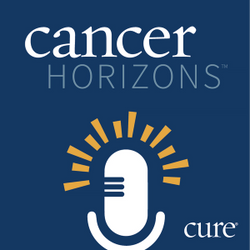Last week, we saw FDA approvals for a new drug regimens, as well as some expert opinion about cancer vaccines. Additionally research touched upon the potential benefit of concurrent ctDNA and tumor testing, and physical activity for pain reduction in cancer survivors.
FDA Approves Onivyde as First-Line Treatment of Metastatic Pancreatic Cancer
On Tuesday, the Food and Drug Administration approved Onivyde plus oxaliplatin, fluorouracil and leucovorin — a regimen referred to as NALIRIFOX — for the frontline treatment of patients with metastatic adenocarcinoma. The approval was based on findings from the NAPOLI 3 trial, which showed that the drug combination improved overall survival (which is the time after treatment patients live before death of any cause) and progression-free survival (time they live before their disease worsens) compared to a combination of gemcitabine plus nab-paclitaxel.
While this approval provides a new, promising treatment for this patient population, Dr. Anthony Shields of the Karmanos Cancer Center in Detroit mentioned that the Onivyde-containing regimen is not a cure.
“In our patients with advanced disease, this is not a curative therapy at this point,” Shields said in an interview with CURE®. “It clearly improves survival. It's still got its share of toxicities, though. … We need better drugs, despite the improvements. If patients get this regimen is the first line, inevitably if they're doing OK we will give gemcitabine/nab-paclitaxel (combination) as the second-line regimen. But we really don't have a third line regimen.”
Cancer Vaccine Could Go ‘Above and Beyond Standard of Care’ For Patients
The oncology community is on the cusp of a sea change regarding cancer vaccines, as one expert told us.
“Current vaccines have a dismal record, and minimal evidence of efficacy,” said Dr. Jeffrey S. Weber, deputy director of the NYU Langone Perlmutter Cancer Center and Laura and Isaac Perlmutter Professor of Oncology at NYU Grossman School of Medicine, via email.
Weber was among the researchers on recent KEYNOTE-942 study investigating mRNA vaccine mRNA-4157 (V940) and Keytruda versus standalone Keytruda for the treatment of patients with advanced-stage melanoma.With a median follow-up of 23 and 24 months, the recurrence or death rates were 22% and 40% and the 18-month recurrence-free survival rates were 79% and 62%, respectively.
The Food and Drug Administration (FDA) granted Breakthrough Therapy Designation to the combination for the post-surgical treatment of patients with high-risk melanoma in 2023 based on the results of KEYNOTE-942.
“This mRNA vaccine would be the first approved cancer vaccine with clear cut evidence of efficacy in a well-done phase 3 trial [which was recently initiated],” Weber said of mRNA-4157.
Pharmaceutical companies Moderna and Merck have initiated V940-001, a phase 3 study evaluating mRNA-4157 and Keytruda as postsurgical treatment for stage 2B to 4 melanoma, announcing in June of 2023 that global patient recruitment had begun following primary analysis of the findings of KEYNOTE-942.
Tumor Testing, ctDNA Finds More Patients Eligible for Personalized Drugs
Circulating tumor DNA and tumor tissue-based testing can both help identify cancer characteristics that may point a patient toward a more targeted treatment regimen. Oftentimes, patients undergo only one of these two tests, but recent research showed that undergoing both of these tests may improve patients’ chance of identifying targetable mutations.
Now, some patient populations — such as those with non-small cell lung cancer — may already be undergoing both tests in accordance with NCCN guidelines. The findings support that other groups in particular, such as those with breast cancer, may benefit from the dual testing modality.
In an interview with CURE, one of the study authors noted that the two tests can be “highly complementary,” and patients should talk to their health care teams about which test to undergo.
Physical Activity May Help Reduce Pain in Cancer Survivors
Increased physical activity may be able to lessen pain in cancer survivors, according to one study.
Specifically, the researchers wrote, “Meeting or exceeding physical activity guidelines was associated with less pain intensity compared to being physically inactive. People who remained active longer term, were previously physically active or became active also reported less pain than those who remained inactive.”
These benefits were also seen in patients who were previously active but then became inactive — highlighting the possibility that the when it comes to pain reduction, the benefits of being active can stretch long-term. But interestingly, the was no association between physical activity and painkiller use.
For more news on cancer updates, research and education, don’t forget to subscribe to CURE®’s newsletters here.



